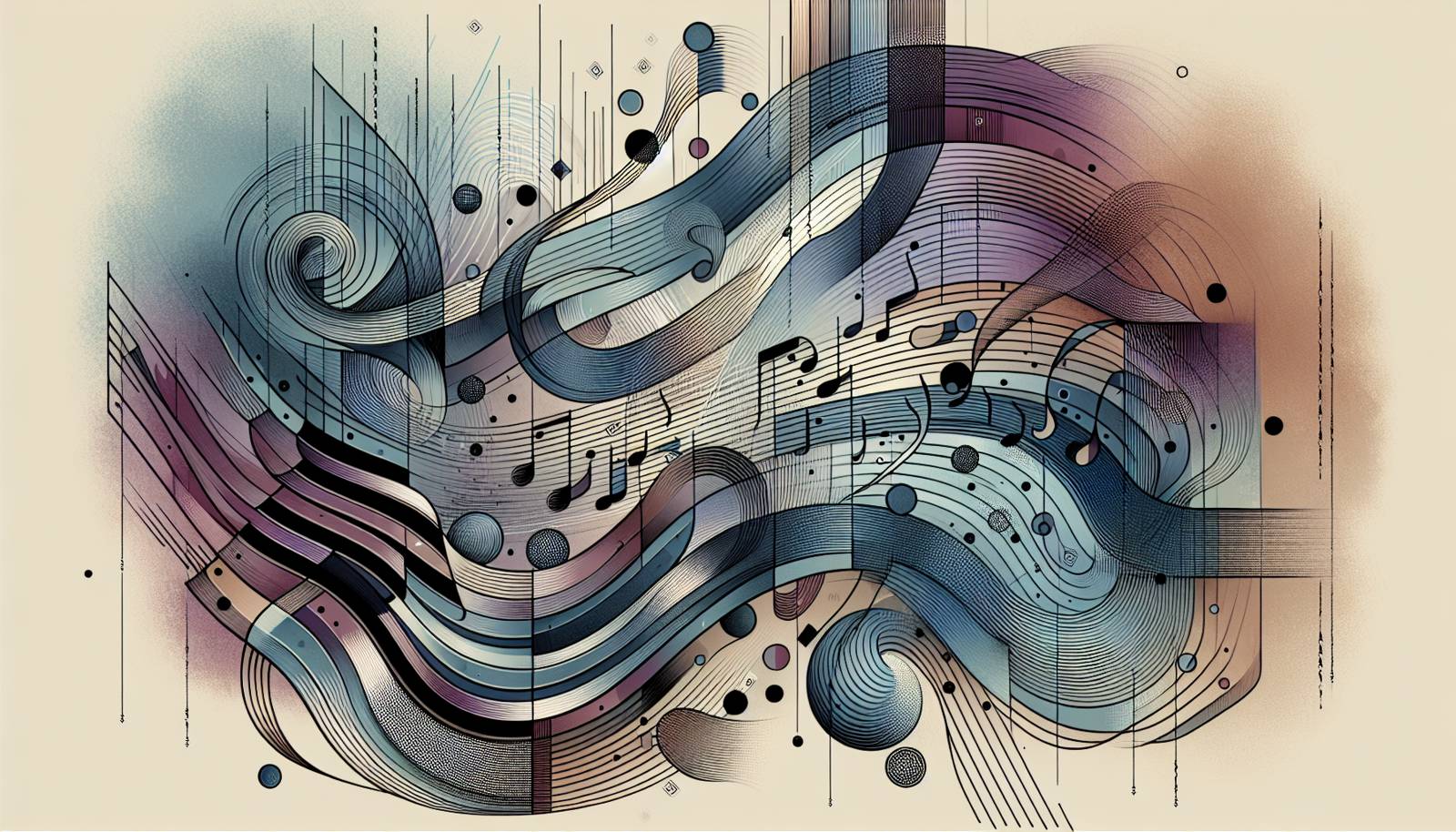
FAQ About The Role of Avant-Garde Jazz in Music Innovation

What is avant-garde jazz?
Avant-garde jazz is a style of music that originated in the late 1950s and early 1960s. It is characterized by its experimental approach, breaking away from traditional jazz conventions. Avant-garde jazz often incorporates free improvisation, atypical structures, and innovative sounds, making it a distinct sub-genre within the broader jazz category.

How did avant-garde jazz influence modern music?
Avant-garde jazz has had a profound influence on modern music by pushing the boundaries of traditional jazz and inspiring various genres to explore new sounds and structures. It played a significant role in the development of free jazz, influenced rock musicians in the 1960s and 1970s, and continues to inspire genres like electronic music, punk, and contemporary classical music.

Who are some notable avant-garde jazz musicians?
Some of the most notable avant-garde jazz musicians include Ornette Coleman, John Coltrane, Cecil Taylor, and Sun Ra. Each of these artists made significant contributions to the genre, using their unique styles to push the boundaries of jazz and create groundbreaking music.

What are the key characteristics of avant-garde jazz?
Avant-garde jazz is known for its emphasis on free improvisation, experimental sounds, and unconventional structures. It often rejects traditional musical norms, opting instead for spontaneity, dissonance, and avant-garde techniques such as atonality and polyrhythms.

When did avant-garde jazz emerge?
Avant-garde jazz emerged in the late 1950s and gained prominence during the 1960s. It developed as musicians began exploring new directions in jazz music, seeking to break away from the constraints of traditional forms.

How does avant-garde jazz differ from free jazz?
While avant-garde jazz and free jazz are closely related, they are not identical. Avant-garde jazz is a broader category that includes various experimental approaches to jazz, while free jazz is specifically oriented towards complete freedom of expression without fixed chord structures or tempos. Both genres strive for innovation and often overlap in style and execution.

What role does improvisation play in avant-garde jazz?
Improvisation is central to avant-garde jazz, allowing musicians to explore new sounds and ideas spontaneously. This freedom from structured arrangements enables artists to express themselves uniquely and to experiment with unconventional techniques, contributing to the genre's innovative character.

Why is avant-garde jazz considered innovative?
Avant-garde jazz is considered innovative because it challenges the conventional boundaries of jazz music, introducing new techniques, forms, and sounds. It emphasizes creativity and experimentation, encouraging musicians to explore unique artistic expressions and redefine what jazz can be.

How did avant-garde jazz impact the development of other music genres?
Avant-garde jazz impacted other music genres by inspiring musicians to incorporate experimental elements into their work. It influenced the development of free jazz, jazz fusion, and progressive rock, and later, genres like ambient music and experimental rock, showcasing the music's broad appeal and adaptability.

What instruments are commonly used in avant-garde jazz?
Avant-garde jazz utilizes a wide range of instruments, including traditional jazz instruments like the saxophone, trumpet, and piano, as well as less conventional instruments and electronic enhancements. The use of extended techniques on these instruments is also a hallmark of the genre.

Can avant-garde jazz be accessible to mainstream audiences?
While avant-garde jazz is often more challenging for mainstream audiences due to its unconventional nature, it can still be accessible, especially when listeners are open to exploring new sounds. Some avant-garde jazz artists have managed to reach broader audiences by incorporating more familiar elements into their compositions.

How do themes in avant-garde jazz differ from traditional jazz?
Themes in avant-garde jazz often explore abstract and complex topics, reflecting the experimental nature of the music. Unlike traditional jazz, which often focuses on structured melody and harmony, avant-garde jazz might emphasize dissonance, atonality, and exploration of avant-garde ideas through sound.

What is the cultural significance of avant-garde jazz?
Avant-garde jazz holds cultural significance as a symbol of artistic freedom and innovation. It challenged pre-existing musical norms and encouraged musicians to break boundaries, representing an important movement in the evolution of modern music.

Are there any prominent avant-garde jazz festivals?
Yes, there are several prominent avant-garde jazz festivals around the world, including the Vision Festival in New York City and the Jazzwerkstatt Peitz in Germany. These festivals celebrate musical experimentation and provide platforms for avant-garde jazz musicians to showcase their work.

What are some classic albums in the avant-garde jazz genre?
Some classic albums in the avant-garde jazz genre include "The Shape of Jazz to Come" by Ornette Coleman, "A Love Supreme" by John Coltrane, and "Unit Structures" by Cecil Taylor. These albums have become seminal works, showcasing the depth and innovation characteristic of avant-garde jazz.

How do critics view avant-garde jazz?
Critics often view avant-garde jazz as a vital and transformative force within the music industry, though it can sometimes be divisive due to its challenging nature. Some praise its creativity and boundary-pushing achievements, while others may find its abstract elements difficult to grasp.

What is the relationship between avant-garde jazz and avant-garde art movements?
Avant-garde jazz and avant-garde art movements share a common goal of challenging the status quo and exploring new creative expressions. Artists in both fields experiment with form, technique, and content, often collaborating across disciplines to create interdisciplinary works that blur the lines between art and music.

Has avant-garde jazz influenced contemporary jazz musicians?
Absolutely, avant-garde jazz has significantly influenced contemporary jazz musicians, encouraging them to explore new sounds and break away from traditional forms. Many contemporary jazz artists incorporate avant-garde techniques into their work, allowing the genre to continue evolving and staying relevant.

What are some misconceptions about avant-garde jazz?
Some misconceptions about avant-garde jazz include the idea that it is entirely unstructured or random. While it often involves improvisation, many avant-garde pieces have underlying frameworks or themes. Additionally, it is not solely dissonant or chaotic but can include moments of melody and harmony.

How do musicians approach composing avant-garde jazz?
Musicians composing avant-garde jazz often begin with a concept or idea rather than a conventional melody or chord progression. They may focus on exploring sound textures, rhythms, and improvisational opportunities. This approach allows for a great deal of freedom and innovation in the composition process.
